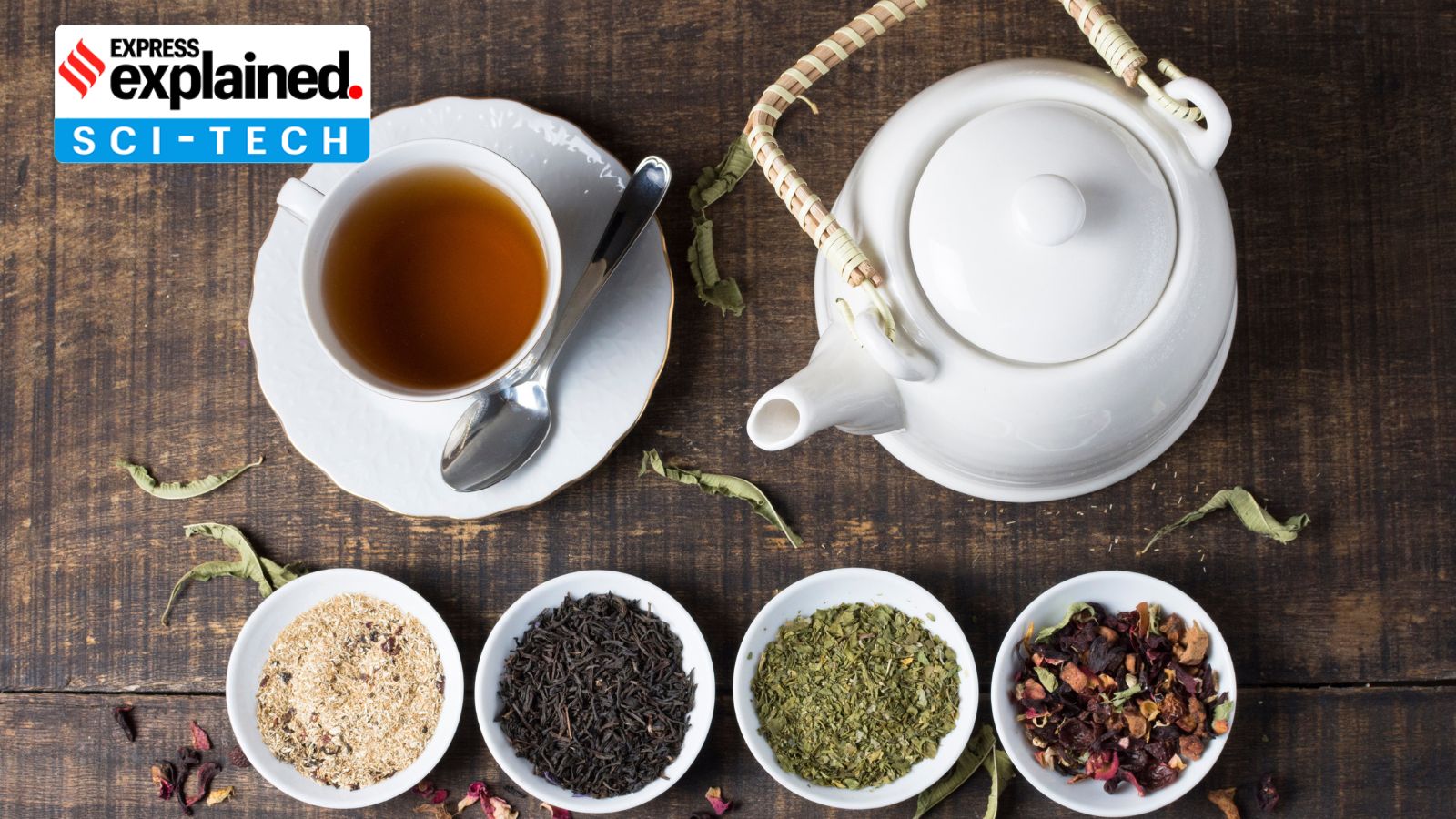Another reason to drink tea: Study finds that tea leaves can steep out lead, heavy metals
According to the study, heavy metals get ‘adsorbed’ by brewing tea, a process by which ions or molecules stick to the surface of another molecule, creating a film on its surface. Here is what to know.
 The Northwestern researchers tested the extent of heavy metal adsorption using different types of tea, types of tea bags and brewing methods. (Freepik photo)
The Northwestern researchers tested the extent of heavy metal adsorption using different types of tea, types of tea bags and brewing methods. (Freepik photo)In wonderful news for tea enthusiasts, a new study has indicated that brewing tea can do more than uplift mood or its reported anti-inflammatory properties. Properly brewed tea may effectively filter heavy metals like lead and cadmium out of the liquid as well.
The study titled “Brewing Clean Water: The Metal-Remediating Benefits of Tea Preparation” was published in the journal ACS Food Science & Technology last week.
“We’re not suggesting that everyone starts using tea leaves as a water filter,” Northwestern University researcher and senior author Vinayak P Dravid said in a press release. “In fact, we often utilise model experiments and tweak diverse parameters to probe and understand the scientific principles and phenomena involved in capture/release cycles of contaminants.”
According to the study, heavy metals get ‘adsorbed’ by brewing tea – a process by which ions or molecules stick to the surface of another molecule, creating a film on its surface. Thus, heavy metal ions stick to or adsorb to the surface of tea leaves and remain trapped there.
“For this study, our goal was to measure tea’s ability to adsorb heavy metals. By quantifying this effect, our work highlights the unrecognized potential for tea consumption to passively contribute to reduced heavy metal exposure in populations worldwide,” Dravid said.
How the study was done
The Northwestern researchers tested the extent of heavy metal adsorption using different types of tea, types of tea bags and brewing methods.
True teas – black, white, green and oolong – as well as herbal blends like chamomile and rooibos were chosen. The researchers also tested tea in loose-leaf and bags of cotton, nylon and cellulose, and examined differences among these.
The researchers created water solutions with known amounts of lead and the metals chromium, copper, zinc and cadmium. These were heated to just below boiling temperature, to which tea leaves were added, each steeped for different durations – from seconds to 24 hours.
The team then measured the metal levels before and after adding the tea leaves and concluded the extent effectively removed.
What the study found
- 01
Extent of lead that can be removed
The Northwestern researchers determined that about 15% of lead can be removed from drinking water through tea preparation, even with lead concentrations at a high 10 parts per million. They estimated this based on a “typical” cup of tea, measured as one mug of water and one bag of tea brewed for three to five minutes.
- 02
Longer steeping time
The length of the steeping time directly affected the adsorption of metals. Teas brewed for long periods or even overnight, like iced tea, could recover almost all the metal in the water.
However, some tea samples were brewed for 24 hours, stripping them of all drinkability as tea.
- 03
Cellulose teabags over others
After testing different types of bags without tea, the team determined that cellulose teabags worked better at adsorbing heavy metals than cotton and nylon bags.
First author Benjamin Shindel theorised that cellulose has a higher surface area, being a biodegradable natural material made from wood pulp. Materials with high surface areas work better at the adsorption process, allowing a larger area for metal ions to stick to. This made it more effective than sleeker synthetic materials.
“The cotton and nylon bags remove practically no heavy metals from water,” Shindel said. “Nylon tea bags are already problematic because they release microplastics, but the majority of tea bags used today are made from natural materials, such as cellulose. These may release micro-particles of cellulose, but that’s just fiber which our body can handle.”
- 04
A finer grind
The team also figured that the tea grind and type played a minor role in adsorbing metals. Among the different varieties examined, the team discovered that finely ground black tea leaves adsorbed slightly more metal than whole leaves. Shindel attributed this to the surface area.
“When tea leaves are processed into black tea, they wrinkle and their pores open,” Shindel explained. “Those wrinkles and pores add more surface area. Grinding up the leaves also increases surface area, providing even more capacity for binding.”
What does this mean for us?
The accessibility of tea as a means to filter metals from water is significant. “Tea happens to be the most consumed beverage in the world,” Shindel said. “You could crush up all kinds of materials to get a similar metal-remediating effect, but that wouldn’t necessarily be practical. With tea, people don’t need to do anything extra.”
While the researchers did not explicitly test for health benefits, the potential to remove lead also has significant outcomes for public health research.
“Across a population, if people drink an extra cup of tea per day, maybe over time we’d see declines in illnesses that are closely correlated with exposure to heavy metals,” he added. “Or it could help explain why populations that drink more tea may have lower incidence rates of heart disease and stroke than populations that have lower tea consumption.”
- 01
- 02
- 03
- 04
- 05






































